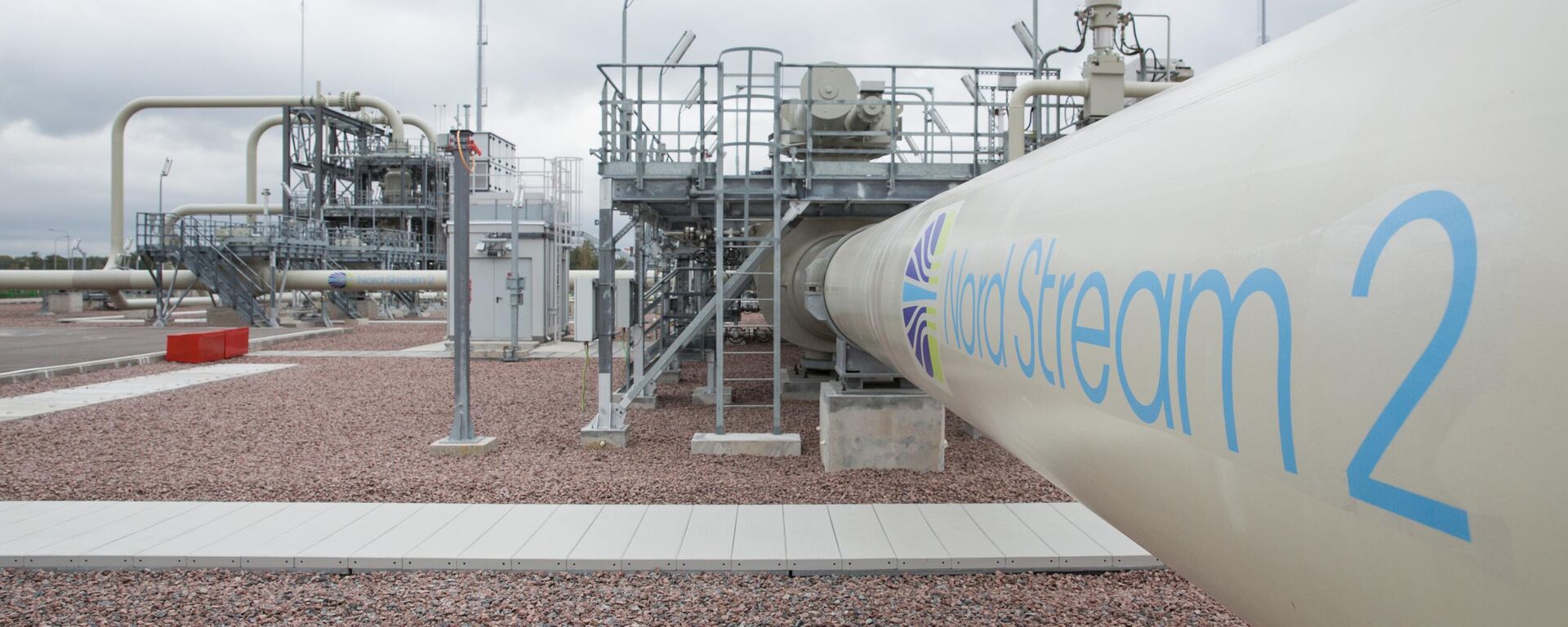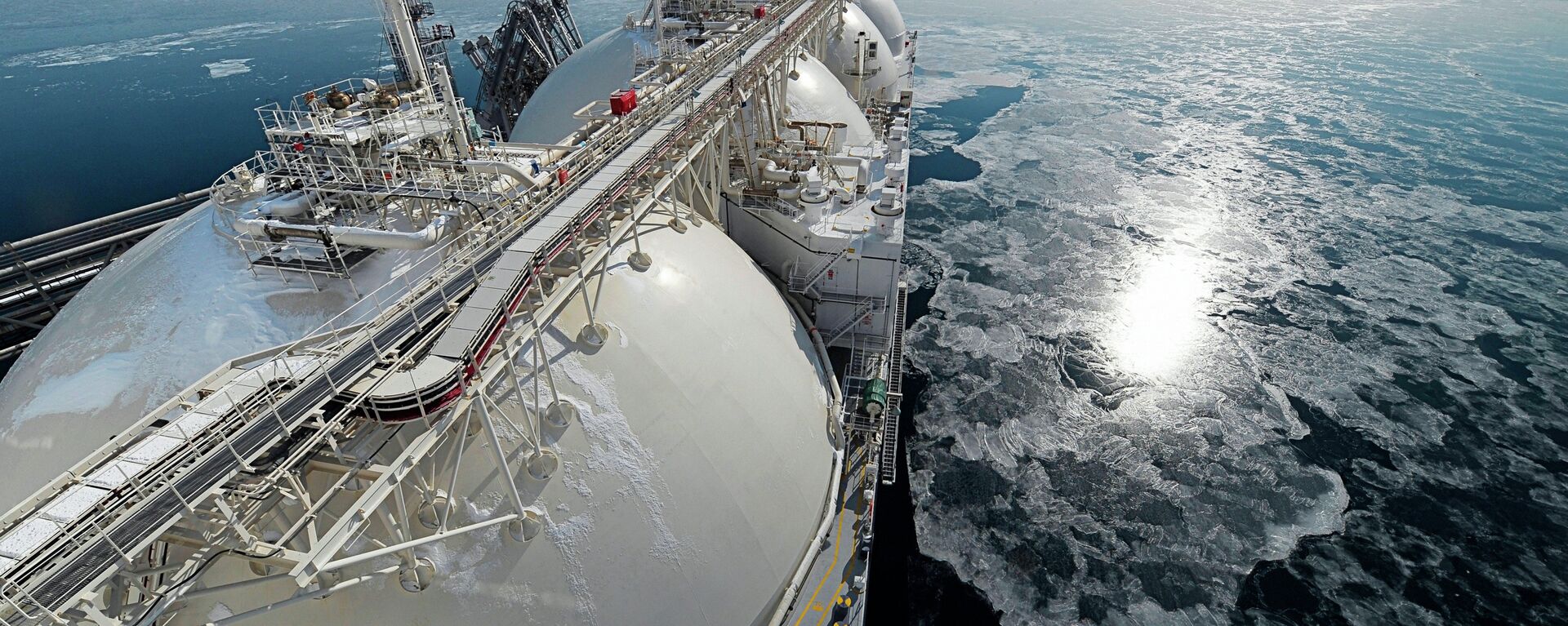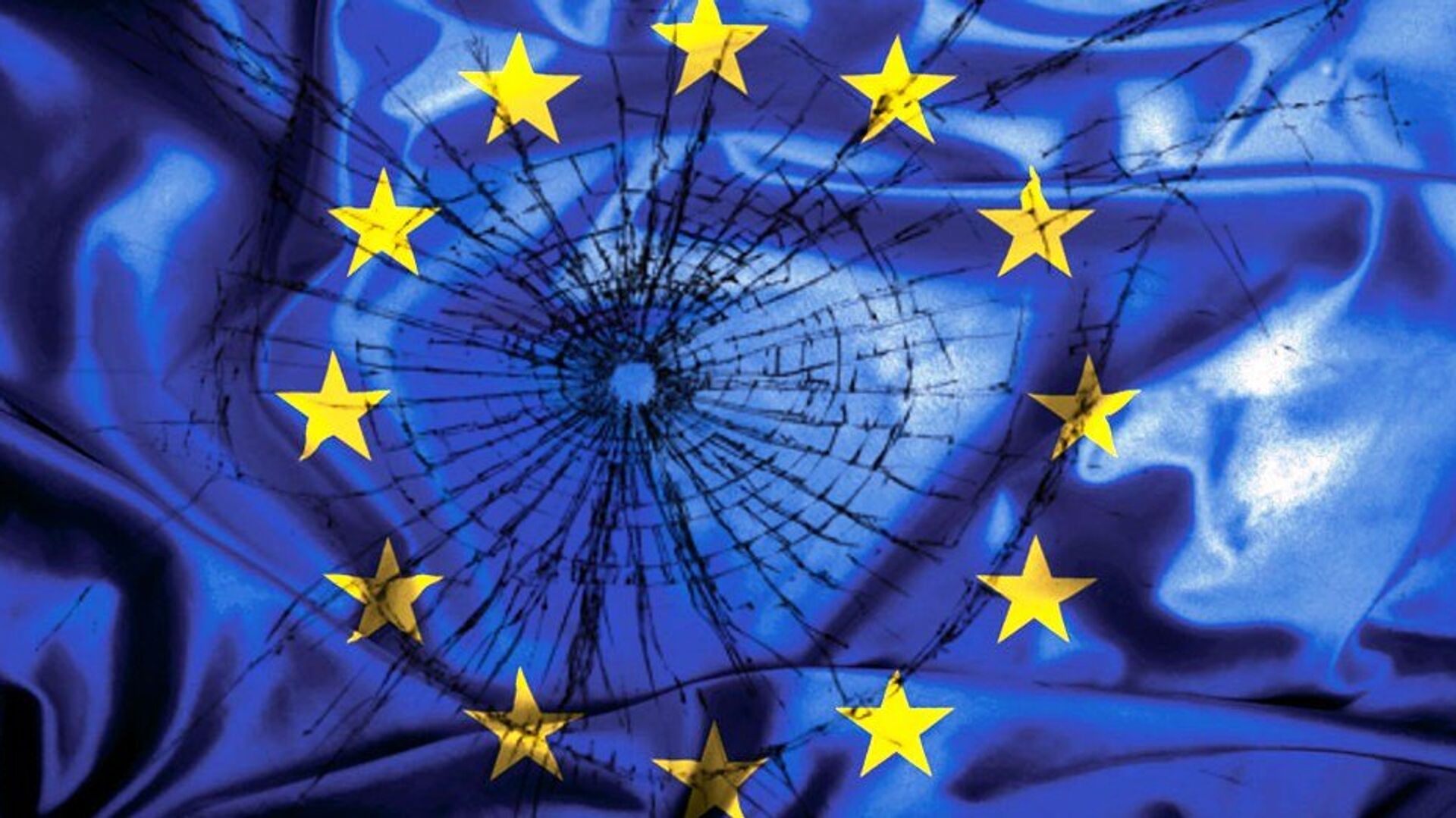https://sputnikglobe.com/20221003/eu-risks-financial-crisis-disintegration-if-it-continues-to-pour-billions-into-ukraine-say-experts-1101466676.html
EU Risks Financial Crisis, Disintegration If It Continues To Pour Billions Into Ukraine, Say Experts
EU Risks Financial Crisis, Disintegration If It Continues To Pour Billions Into Ukraine, Say Experts
Sputnik International
The Biden administration has pledged to provide $1.5Bln a month to Kiev to keep the Ukrainian economy afloat and is pushing the EU to commit to a similar... 03.10.2022, Sputnik International
2022-10-03T13:40+0000
2022-10-03T13:40+0000
2022-10-03T13:40+0000
analysis
europe
opinion
us
natural gas
energy crisis
ukraine
inflation
recession
https://cdn1.img.sputnikglobe.com/img/104055/81/1040558180_20:0:982:541_1920x0_80_0_0_79def0609d7a886c5611a72c7d86e3a5.jpg
"Since the beginning of the 'Ukraine issue' back in 2008 to 2014, it was clear to me that the Anglosphere has used it as a Trojan horse to check both EU [Germany] and Russia," says Paolo Raffone, a strategic analyst and director of the CIPI Foundation in Brussels. "The EU leadership is fundamentally working against European interests, abiding by the policy dictated by the US/UK/NATO. No doubt the EU will be saddled with the greatest share of rebuilding Ukraine that will be, together with Poland, a US/UK strategic fiefdom in Eastern Europe to separate the EU from Russia and therefore stymie Germany's heft as a regional and global player. [This is] just like the 1901 Mackinder theory."The Biden administration has vowed to support Kiev with $1.5Bln a month in economic aid and has approved $4.5Bln in grants for Ukraine to cover the country's needs until the end of the year. The White House has held talks with EU officials pressing them to follow suit to keep Ukraine's economy afloat, Bloomberg wrote on Sunday, citing people familiar with the matter. According to the International Monetary Fund, Ukraine needs roughly $5Bln per month to cover essential services.Meanwhile, the EU has yet to deliver on its commitments of nearly 9Bln euros ($8.8Bln) for Kiev: the bloc paid out only 1Bln euros last summer. Another 5Bln euros have been allocated but not yet paid out to Ukraine; the rest of the sum remains stuck over formal and financial issues.The aforementioned delays are understandable given that "Europeans are now in total disarray over funding subsidies to their consumers and industry for relief from the impossibly high energy bills that are now being sent out by electricity suppliers," Gilbert Doctorow, an international relations analyst, said.The EU is facing nothing short of "a continent-wide recession", Bloomberg noted on 28 September, predicting a "harsh winter" for Europe’s households, chemical producers, steel plants, and car manufacturers. "If the coming months turn especially icy and the bloc’s 27 members fail to share scarce fuel supplies efficiently," the European economy could contract by as much as 5 percent, according to the Bloomberg Economics' estimates.Earlier, the Wall Street Journal revealed that European manufacturers are increasingly shifting their business to the US as the energy crunch bites. To complicate matters further, the sabotage attack on the Nord Stream pipeline system put a rocket under energy prices and cut Europe's access to additional volumes of affordable fuel.According to Raffone, the split among EU countries is already a reality. To illustrate his point he refers to Berlin's unilateral decision to allocate 200Bln euros ($194Bln) to shield the country's population from surging energy prices. Other EU governments are struggling to solve their crises on their own. Meanwhile, if Italy's new government fails to steer the country out of the fiscal crisis, the nation's economy could detonate and cause the EU's disintegration, Raffone alleges.Even though technically the EU can "feed" Ukraine regularly, it would be politically disastrous under the present circumstances, he warns.
https://sputnikglobe.com/20220930/observers-a-big-winner-from-nord-stream-destruction-is-us-1101371764.html
https://sputnikglobe.com/20221001/without-russian-gas-eu-will-become-hopelessly-reliant-on-american-frackers-study-warns-1101421639.html
ukraine
Sputnik International
feedback@sputniknews.com
+74956456601
MIA „Rossiya Segodnya“
2022
News
en_EN
Sputnik International
feedback@sputniknews.com
+74956456601
MIA „Rossiya Segodnya“
Sputnik International
feedback@sputniknews.com
+74956456601
MIA „Rossiya Segodnya“
europe, opinion, us, natural gas, energy crisis, ukraine, inflation, recession
europe, opinion, us, natural gas, energy crisis, ukraine, inflation, recession
EU Risks Financial Crisis, Disintegration If It Continues To Pour Billions Into Ukraine, Say Experts
The Biden administration has pledged to provide $1.5Bln a month to Kiev to keep the Ukrainian economy afloat and is pushing the EU to commit to a similar package, Bloomberg has reported. Meanwhile, the EU is facing a severe economic slowdown, the Organisation for Economic Co-operation and Development (OECD) has warned.
"Since the beginning of the 'Ukraine issue' back in 2008 to 2014, it was clear to me that the Anglosphere has used it as a Trojan horse to check both EU [Germany] and Russia," says Paolo Raffone, a strategic analyst and director of the CIPI Foundation in Brussels. "The EU leadership is fundamentally working against European interests, abiding by the policy dictated by the US/UK/NATO. No doubt the EU will be saddled with the greatest share of rebuilding Ukraine that will be, together with Poland, a US/UK strategic fiefdom in Eastern Europe to separate the EU from Russia and therefore stymie Germany's heft as a regional and global player. [This is] just like the 1901 Mackinder theory."
The Biden administration has vowed to support Kiev with $1.5Bln a month in economic aid and has approved $4.5Bln in grants for Ukraine to cover the country's needs until the end of the year. The White House has held talks with EU officials pressing them to follow suit to keep Ukraine's economy afloat, Bloomberg
wrote on Sunday, citing people familiar with the matter. According to the International Monetary Fund, Ukraine needs roughly $5Bln per month to cover essential services.
Meanwhile, the EU has yet to deliver on its commitments of nearly 9Bln euros ($8.8Bln) for Kiev: the bloc paid out only 1Bln euros last summer. Another 5Bln euros have been allocated but not yet paid out to Ukraine; the rest of the sum remains stuck over formal and financial issues.

30 September 2022, 12:28 GMT
The aforementioned delays are understandable given that "Europeans are now in total disarray over funding subsidies to their consumers and industry for relief from the impossibly high energy bills that are now being sent out by electricity suppliers," Gilbert Doctorow, an international relations analyst, said.
"Most EU countries can’t raise the hundreds of billions through issuance of bonds - as Germany is about to do - because of their weaker economies and high public indebtedness," Doctorow says, casting doubt on the EU's ability to meet Washington's demands regarding Ukraine. "The EU governments will soon be facing non-payment movements from their citizenry and cannot afford to be seen to be delivering cash money to Kiev."
The EU is facing nothing short of "a continent-wide recession", Bloomberg
noted on 28 September, predicting a "harsh winter" for Europe’s households, chemical producers, steel plants, and car manufacturers. "If the coming months turn especially icy and the bloc’s 27 members fail to share scarce fuel supplies efficiently," the European economy could contract by as much as 5 percent, according to the Bloomberg Economics' estimates.
Earlier, the Wall Street Journal
revealed that European manufacturers are increasingly shifting their business to the US as the energy crunch bites. To complicate matters further,
the sabotage attack on the Nord Stream pipeline system put a rocket under energy prices and cut Europe's access to additional volumes of affordable fuel.

1 October 2022, 16:58 GMT
According to Raffone, the split among EU countries is already a reality. To illustrate his point he refers to Berlin's unilateral decision to allocate 200Bln euros ($194Bln) to shield the country's population from surging energy prices. Other EU governments are struggling to solve their crises on their own. Meanwhile, if Italy's new government fails to steer the country out of the fiscal crisis, the nation's economy could detonate and cause the EU's disintegration, Raffone alleges.
Even though technically the EU can "feed" Ukraine regularly, it would be politically disastrous under the present circumstances, he warns.
"How will politicians explain that huge funds can be made available to Ukraine but not to support the EU citizens?" the strategic analyst said. "The attempt to justify such a choice, recalling the famous 'EU values', is dangerous because the EU Treaties never speak of 'values'. The risk is to ignite a series of 'EU exits'."




